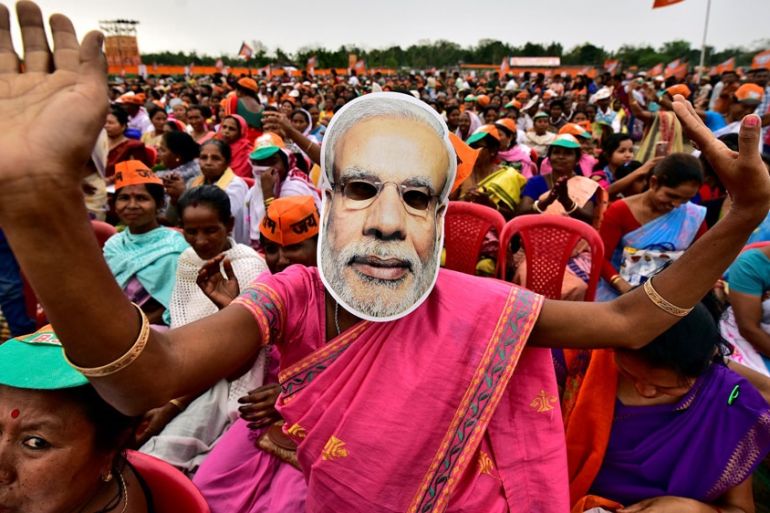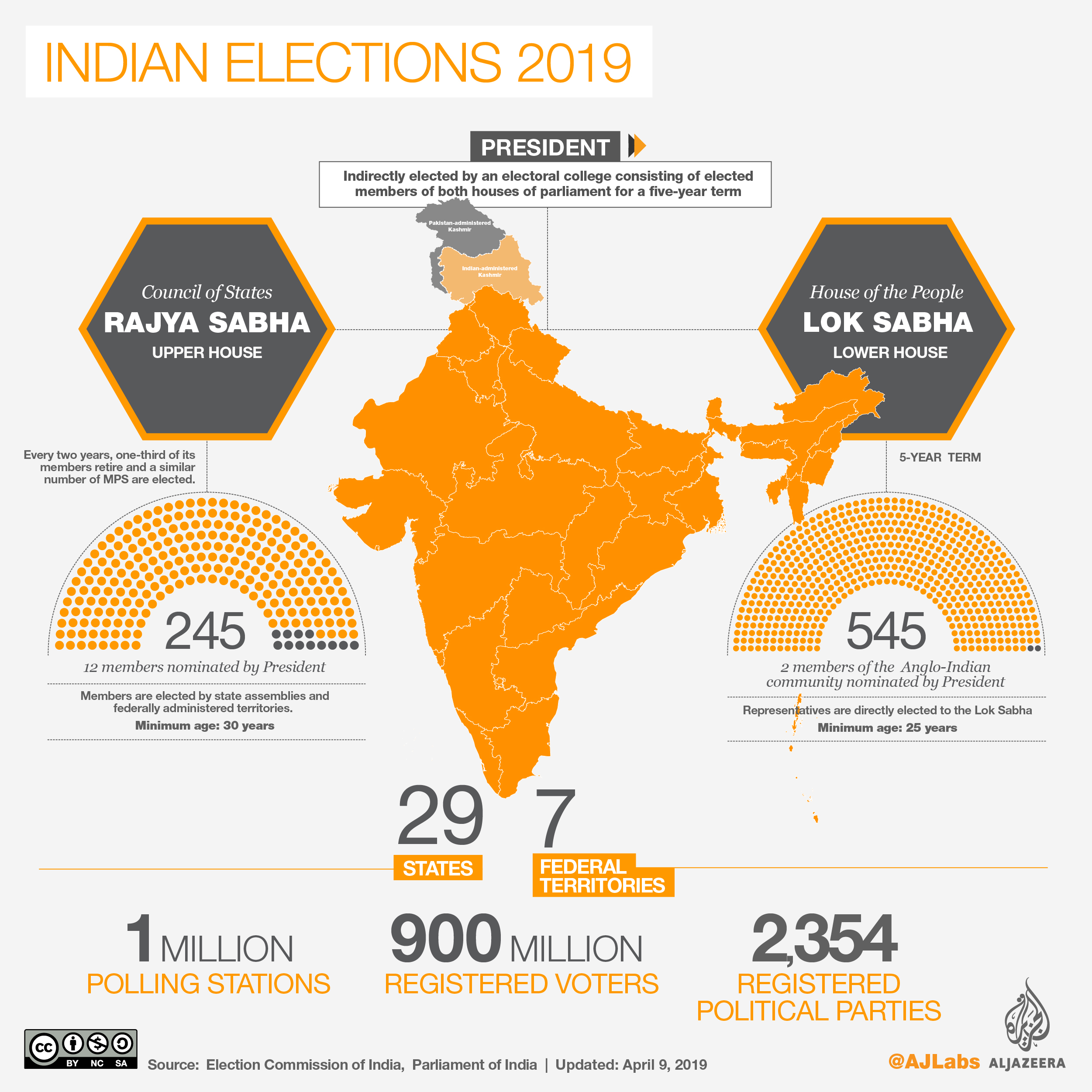India votes in the third phase of general elections
About 66 percent people turn out to vote that was marred by violence in West Bengal state and EVM glitches in Kerala.

Millions of Indians voted in the third and largest phase of a staggered general election on Tuesday, including Prime Minister Narendra Modi who cast his ballot in his home state of Gujarat.
In all, 188 million voters were eligible to cast ballots in 117 constituencies during the day across 15 states and federally administered territories.
Keep reading
list of 4 items‘Absolute power’: After pro-China Maldives leader’s big win, what’s next?
Solomon Islands pro-China PM Manasseh Sogavare fails to secure majority
Pro-China party on course for landslide victory in Maldives election
About 66 percent of those eligible had voted by the end of the day’s voting, according to the interim figures from the election commission.
More than 900 million Indians are expected to elect 543 members to the lower house of parliament or Lok Sabha.
The general election, which has seven phases, began on April 11 and will end on May 19. Votes will be counted on May 23.
In Gujarat, Modi first met his mother early in the morning and then rode in an open jeep, surrounded by hundreds of onlookers, to cast his vote shortly after 8am (0230 GMT) – the opening time of the polls.
“IED is a weapon of terrorism, and voter ID is a weapon of democracy,” he told reporters after voting, referring to improvised explosive devices and voter identification cards.
“I believe the voter ID is much more powerful than an IED.”
Violence flared in the eastern state of West Bengal and one Congress worker was killed and at least three people were injured, a state deputy chief election officer, Sanjay Bose, said.
A Congress spokesman said the worker had been killed in a clash with supporters of a regional party called the Trinamool Congress, which denied that assertion. The election commission said it was investigating.
In Kerala, leaders of three political parties complained about electronic voting machine (EVM) malfunctions, but an election commission official said glitches were not widespread and there were enough replacement machines.
Economic mishandling
The election is seen as a referendum on Modi’s five-year rule. He has adopted a nationalist pitch trying to win the majority Hindu votes by projecting a tough stance against neighbouring Pakistan.
The opposition is challenging him over a high unemployment rate of 6.1 percent and farmers’ distress aggravated by low crop prices.
“This is, sort of, an inflation point,” said Rahul Verma, a fellow at the New Delhi-based think-tank Centre for Policy Research.
So far, the ruling Bharatiya Janata Party (BJP) has aggressively pushed Modi’s national security record as it seeks to offset the opposition’s charges of economic mishandling, inadequate jobs creation and widespread farm distress.
“I think job creation, sustainable development and communal harmony should be the top priorities for the upcoming government,” said Ubaidullah Mohyideen, 26, who voted on Tuesday in Kerala’s Wayanad, one of the two seats that leader of the main opposition Congress party, Rahul Gandhi, is contesting.
Addressing an election rally in western Maharashtra state on Monday, Modi mentioned the Sri Lanka attacks that killed more than 320 people. He said India’s security had been enhanced after his government came to power in 2014.
![Modi shows his ink-marked finger after casting his vote in Ahmedabad [Amit Dave/Reuters]](/wp-content/uploads/2019/04/07eb9c100dac44e2b3cb2481701b4705_18.jpeg)
“Friends, remember what India’s situation was before 2014,” Modi said. “Weren’t there bombs going off in different corners of the country every other day?”
Verma said Modi’s repeated references to the Sri Lankan attacks were a sign that the BJP would double down on the security issue for the remainder of the election campaign, which the prime minister began as a front-runner amid escalated tensions with neighbouring Pakistan.
Voting in India is conducted by electronic voting machines or EVM, a system that was first introduced in 1982. More than 2.3 million EVMs will be used in the 2019 elections as compared with 1.8 million in 2014.
To check for foul play, vehicles transporting the EVMs will be fitted with GPS devices to monitor their movements.
